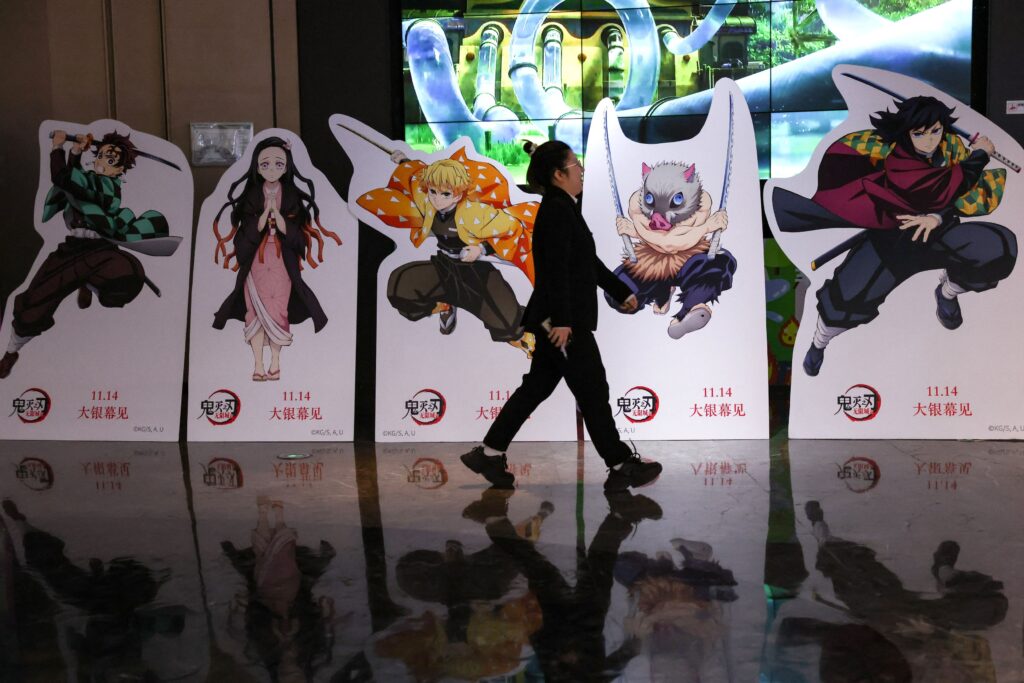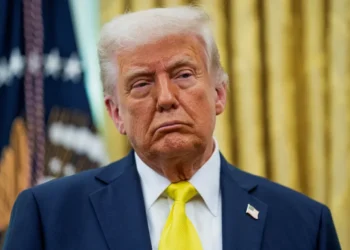TAIPEI, Taiwan — Chinese travelers have canceled more than half a million plane tickets to Japan since Saturday. Chinese students there have been told to be careful. Two Japanese films have been pulled from the Chinese box office. Ships are patrolling in disputed waters. And state-affiliated academics are warning that the entire country of Japan could be turned into a “battlefield.” And now, on Wednesday, China suspended imports of Japanese seafood.
Beijing is using harsh rhetoric, military saber-rattling and economic coercion to make clear its displeasure with Japan’s new prime minister, Sanae Takaichi, a China hawk who suggested earlier this month that Japan could intervene militarily if Beijing makes good on its threat to invade Taiwan, a self-governing island that the Chinese Communist Party claims as its territory.
Governments in Japan and the United States, as well as like-minded-allies, are usually careful to practice “strategic ambiguity” when it comes to Taiwan — refraining from clarifying whether they would intervene if China tried to take control of the island — which avoids angering Beijing and provoking this kind of backlash.
China’s response to Takaichi’s lack of ambiguity has been immediate and extreme, and it is threatening to turn a diplomatic spat into a regional crisis.
“Her backstabbing obviously enraged China’s top leadership,” said Wang Guangtao, deputy director of the center for Japanese studies at Shanghai’s Fudan University. “China’s reactions could also be meant as a reminder to some targeted audiences in the United States and other Western countries who have great enthusiasm for the Taiwan issue.”
Takaichi’s comments seem to be an attempt to “drag the United States into the fray,” Wang said, as Washington would be treaty-bound to defend Japan if its ally was attacked as part of a cross-strait conflict.
The tensions underscore the combustible nature of the relationship between Japan and China, especially as Takaichi promises to strengthen Japan’s military capabilities, including accelerating Tokyo’s timeline for increasing defense spending — with the strong encouragement of the Trump administration. Next month, Japan is set to vote on its largest-ever defense budget, with Takaichi pledging to a spending goal of 2 percent of gross domestic product, accelerating recent sharp increases.
Against that backdrop, Beijing may be looking to signal that it doesn’t want Japan to go too far in developing its military capabilities, said Jennifer Lind, an expert on East Asian international security at Dartmouth College.
“This is a really formative time … [and] a time of tremendous flux in Japan’s security strategy,” Lind said. “China sees that, and China wants to lay down the marker. China wants to say, ‘We see you moving in this direction, and we don’t like it.’”
It’s also a key moment for the U.S.-China relationship. Washington and Beijing are in the middle of trade negotiations following months of tit-for-tat tariffs, while President Donald Trump has indicated he will go to Beijing in April.
Rana Mitter, a China expert at the Harvard Kennedy School, said he expects Chinese leader Xi Jinping to push hard at the Beijing summit for a downgrading of U.S. support for Taiwan. The anger directed at Tokyo may be a part of that broader effort, he said, as “Beijing generally tends to make very maximalist demands, often couched in extremely strong language early on in negotiations.”
Takaichi pushes boundaries
Takaichi’s Nov. 7 comment — that a potential Chinese military attack on Taiwan would constitute a “survival-threatening situation” for Japan — signaled that Japan could respond militarily to a cross-strait war. The country’s post-World War II pacifist constitution stipulates that its armed forces exist only for self-defense, although Takaichi’s mentor, former prime minister Shinzo Abe, led a change in 2015 to allow Japan to act if an aligned country was attacked.
While her remark was not particularly inflammatory, experts in Tokyo say, it did appear to go further than the Japanese government’s official stance.
Takaichi, who took office last month, has been one of Japan’s most prominent supporters of Taiwan. As lawmaker, she made several trips — most recently in April — to the island, which was formerly a Japanese colony.
China and Japan are no strangers to diplomatic flare-ups — including a fierce dispute in 2012 over islands in the East China Sea that are called Senkaku by Japan and Diaoyu by China. The Chinese animosity is largely driven by a belief that Japan has not fully apologized for atrocities committed during World War II.
This history is particularly relevant this year, which marks the 80th anniversary of Japan’s surrender in that war.
Beijing, which hosted an enormous military parade in September celebrating the anniversary, has been “reinserting Japanese war atrocities into the public sphere,” said Mitter. “There’s no doubt that Japan is a particularly sensitive subject for China, and this year is a particularly sensitive year.”
That sensitivity is clear from Beijing’s rhetoric in recent days as state media has pumped out vitriolic attacks against Japan.
In the PLA Daily, the official mouthpiece of the Chinese military, a researcher at a think tank affiliated with China’s Ministry of State Security warned that all of Japan “risks becoming a battlefield.”
Beijing hasn’t just used rhetoric to punch back. After four Chinese coast guard ships patrolled the waters around the Senkaku/Diaoyu islands on Sunday, China’s Maritime Safety Administration announced two sets of live-fire drills in the Yellow Sea, between China and the Korean Peninsula, which will stretch until next Tuesday and are widely seen as a response to the Japan spat.
Inflicting economic pain
It has also deployed perhaps its most powerful tool: economic coercion.
China is Japan’s largest trading partner by far, with bilateral trade between the two countries hitting $308 billion last year, according to official Chinese statistics.
China on Wednesday informed Japan that it would suspend imports of Japanese seafood products, local media reported.
Mao Ning, a spokesperson for China’s Foreign Ministry, confirmed the suspension, saying there was “no market” for Japanese seafood in the current environment anyway. She urged Tokyo to “retract its erroneous remarks” or prepare to “bear the consequences of more serious countermeasures.”
China is also a key market for Japanese service industries including education, entertainment and tourism.
To take aim at these sectors, Beijing issued a travel warning for Japan on Friday, saying that the Taiwan remarks posed “significant risks to the personal safety and lives of Chinese citizens in Japan.”
Several Chinese airlines subsequently allowed free ticket cancellations for trips to Japan, and about 543,000 tickets have been canceled since Saturday — accounting for 40 percent of all booked tickets, according to independent aviation analyst Li Hanming. About 20 percent of flight routes between the two countries have also been canceled, Li said.
China is the largest source of tourists to Japan, according to Japan National Tourism Organization data. They not only make up nearly a quarter of all foreign travelers to Japan — a number that had been growing, with 7.5 million Chinese tourists traveling to Japan in the first nine months of this year, surpassing last year’s total — but they are also the biggest spenders, according to the data.
Chinese citizens also make up the largest proportion of Japan’s international student numbers, providing another pressure point. China’s Ministry of Education struck this nerve on Sunday, with an advisory telling Chinese students to “closely monitor” the security situation in Japan.
Chinese film distributors postponed the release of several Japanese films, according to China Film News, an outlet supervised by the state film bureau. An animated Japanese movie released before the crisis, “Demon Slayer: Kimetsu no Yaiba,” was performing well, but box office sales plummeted after Takaichi’s comments.
China is the world’s second-largest movie market behind the U.S., accounting for 20 percent of the worldwide market last year.
“We don’t want nationalism and patriotism to get overblown on either side, but there is a chance mutual hatred might put expats and tourists in danger,” said Cai Liang, director of the Shanghai Institutes for International Studies’ center for northeast Asian studies.
These tensions threaten to put a tangible dent in Japan’s economy, which was already looking shaky.
A 25 percent drop in visitors from China and Hong Kong in the next year — similar to the decline of Chinese tourists during the 2012 territorial dispute — would slice 0.29 percent off gross domestic product, said Takahide Kiuchi, an economist at Nomura Research Institute.
Partly because of these economic stakes, Japan is working to lower the temperature through dialogue, though experts do not expect Takaichi to retract her comments.
Talks this week do not appear to have made any progress, and an annual academic forum for Japanese and Chinese scholars has been postponed.
More retaliation from China could be on its way.
“Chinese retaliation is going to be a whole package,” said Kuo Yujen, vice president of the Institute for National Policy Research in Taipei and an expert on Japan-Taiwan relations. “I don’t think China will skip this good opportunity to make an example out of Japan.”
But the fierce retaliation also risks backlash in the region. Though countries like Japan, South Korea and Australia are all economically interlinked with China, the diplomatic attacks breed a sense of camaraderie against Beijing, said Michael Green, head of the United States Studies Centre, an Australian think tank.
“The more Beijing does stuff like this, the more likely it makes it that you could have some kind of collective defense arrangement,” said Green, who previously worked on Asia in the George W. Bush administration. “China’s actions are creating the kind of containment that they say they don’t want.”
Lee and Li reported from Seoul. Chie Tanaka in Tokyo contributed to this report.
The post China punishes Japan’s new leader with harsh words and economic pain
appeared first on Washington Post.




